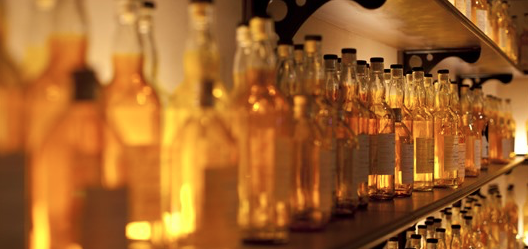Scotch Whisky was one of the first applications to be listed on New Zealand’s register of geographical indications (GIs) — a sign used on wines and spirits from a specific area which have a quality, reputation or other characteristic linked to that location.
Scotch Whisky was one of the first GI applications to appear on the New Zealand Intellectual Property Office site when the regime went live in July, the Scotch Whisky Association (SWA) said.
Once accepted, “Scotch Whisky” would have protection as a registered GI in New Zealand.
New Zealand’s GI scheme is designed to give greater legal protection to domestic and international wines and spirits and protect consumers against fakes.
GI recognition would mean the description “Scotch Whisky” can only be used on whisky produced in Scotland in accordance with UK law.
Requirements include that Scotch is only made from the raw materials of water, cereals and yeast and matured in Scotland for at least three years in oak casks.
“Currently in New Zealand, if someone is selling fake ‘Scotch’ there is the option of taking legal proceedings for breach of the Fair Trading Act which comes with some uncertainties,” said the SWA.
“GI status is of great commercial value to the Scotch Whisky industry and gives consumers confidence in the quality and provenance of what they are buying.
“Scotch is officially recognised in the laws of nearly 100 countries.”
Looking ahead, the SWA said it would welcome an early UK-New Zealand free trade agreement following Brexit.
“While Scotch Whisky already enjoys a zero import tariff in New Zealand, an FTA could deliver other benefits,” said the SWA.
“Such benefits are: guaranteed and improved protection of GIs; strengthened whisky definition; removal of import duty equivalent charges; industry access to New Zealand’s health promotion levy to help fund responsible drinking campaigns and end of the prohibition of the sale of spirits in the country’s supermarkets.”
Lindesay Low, Scotch Whisky Association senior legal counsel, said: “As Scotch Whisky continues to grow in popularity, attempts are often made to try to take unfair advantage of its success, for example by trying to make and sell fakes.
“Recognition as a GI helps protect against such illegal activities.
“It’s important that consumers have confidence in the provenance of what they are buying, which this recognition of Scotch as a ‘geographical indication’ will help to achieve.
“We were quick off the mark to file our application to register Scotch Whisky as a GI in New Zealand as it offers such great protection to our product.
“We await the decision of the New Zealand authorities on our early application.
“We hope a free trade agreement between New Zealand and the UK will be signed following Brexit to further improve the status of Scotch Whisky in the market.”
British High Commissioner Jonathan Sinclair said: “My team have built a strong relationship with the SWA and had worked closely with them to push the case for changes to New Zealand legislation …
“The export of Scotch Whisky to New Zealand is important and we will continue to work with the industry to ensure that it continues to thrive and prosper in New Zealand.”
New Zealand intellectual property firm AJ Park assisted the SWA in filing the application.
Laura Carter, senior associate at AJ Park, said: “A new registration regime is always an exciting but somewhat uncertain time.
“It’s great having the kind of collaborative relationship that we have with the Scotch Whisky Association so we are able to navigate this new environment together, and bolster the protection available for the fantastic product produced by the Association’s members.”
